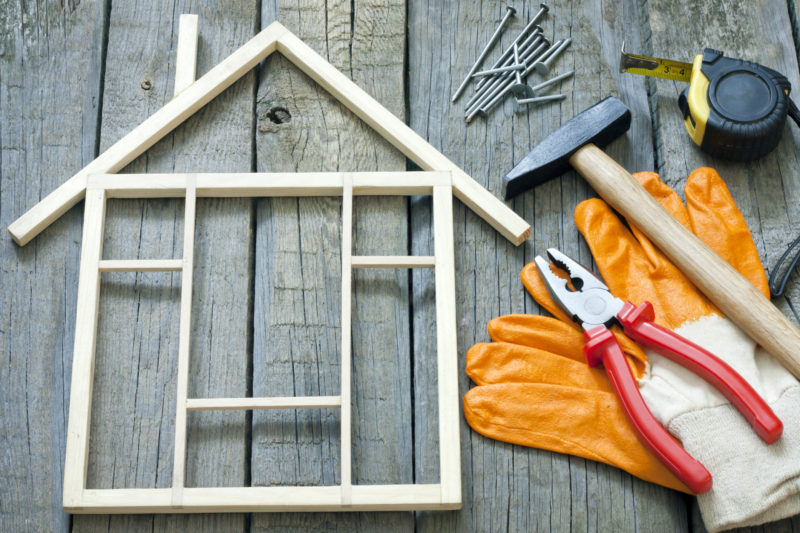Six Things to do Before Renovating a House

When you’ve just got the keys to a doer-upper, you might be keen to get cracking with renovations. Although this is understandable, there are a few things you should do before you start doing any work whatsoever. Taking the time to complete these following steps will ensure your renovations are carried out safely and sensibly before you start renovating a house.
Get insurance sorted
As soon as a house is legally yours, so are the problems associated with it. So, before you start doing any work, it’s essential that you take out insurance for it. Should a pipe rupture or any of your tools get stolen, you’ll want to know you’re covered. This is especially important if you’re not living in the property while you’re renovating as leaks and other issues may not be spotted straight away.
Standard home insurance could cover you for all these eventualities but you might want to take out renovation insurance to be sure you’re covered for accidental damage while you’re doing home improvements. If you’re not living onsite while work is being done, make sure the policy includes unoccupied property insurance. You should also check it covers accidental damage to neighbouring properties and includes public liability cover, just in cases injurieshappen.
Once you have a policy in place, keep your insurer updated of major renovation work, to ensure you stay covered.
Clear the house out
When you first get the keys to your doer-upper you’d expect it to be completely empty. But this is rarely the case.
Homes that need a lot of updating tend to come on the market through repossession or after the homeowner has died. This can mean that there’s furniture and other belongings to clear out. Even if the house itself is pretty much empty, the garden may still need clearing. And it’s essential that you do this before you start renovating, so that you have space to see what you’re working with. It will also provide better access for trades.
If you want to speed this process up, you can bring in house clearance specialists who should be able to tackle this for between £200 and £700. Alternatively, you could hire a skip. You may decide to donate usable furniture to charity. If so, they usually pick this up for free, helping you to cut down your costs.
Consult a structural engineer
Chances are you had a survey done before you bought the house. But when it comes to doer-uppers, it’s always worth getting a structural engineer in to assess the property before you start work – even if you’re not planning to take down any walls.
The reason for this is to make sure there are no immediate dangers to be aware of. This will keep both you and any trades you hire safe. But it will also help you to manage your budget. If you know there are structural issues to resolve, then you can add this cost to your budget rather than getting a nasty shock later down the line.
Check local planning restrictions
Before you can start making any grand – or even small – plans, you should familiarise yourself with the basic rules of planning and check whether your house or the local area carries any extra restrictions.
Leasehold properties will usually need consent from the freeholder before you can carry out work. And some historical buildings will need Listed Building Consent. If you live in a Conservation Area, National Park or an Area of Outstanding Natural Beauty, then you may find restrictions are a little tighter than normal. So, consult your local planning office before you make any changes. There can be restrictions to smaller improvements such as changing your windows, so be aware of this before you start anything and include this in your renovation plan.
Make a plan
And you do need to draw up a renovation plan. No one has an endless budget, so it’s important to decide what needs doing and calculate the costs involved.
Start by asking yourself a few basic questions. Do you need an architect? Or is it just a cosmetic refurb? How much money do you have to spend and where should you target your money?
Then, start to list the stages of your renovation, putting the jobs in a logical order. For instance, your plan might begin with making the house watertight and stripping out the old fixtures and fittings. Alongside this list, you can add in estimated timescales and costs. Once you start getting in quotes for the renovation work, you will be able to build a more accurate plan.
Contact utilities
You might assume that the house you have bought is connected to the water mains and has a gas and electricity supply but if a house has been lying empty for some time, you might need these reconnecting and this takes time and money. There could also be extra obstacles, such as the discovery of lead piping, which can hold things up further.
Ideally, you’ll need to have a working water and power supply so that trades can carry out their work. This means you’ll need to get your utilities sorted out straight away.

